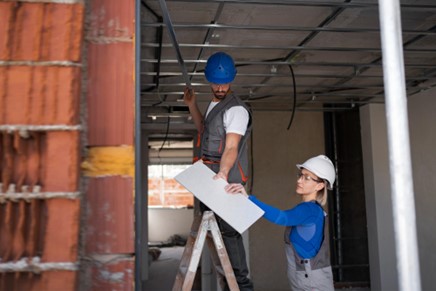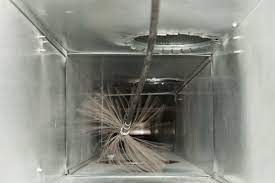Common Water Heater Issues and How to Troubleshoot Them
A dependable source of hot water is an absolute necessity in the twenty-first century, particularly in the frigid winter months. The water heater is an essential appliance in guaranteeing that warm water is readily available for uses such as bathing, cooking, and cleaning. Nevertheless, similar to any mechanical system, water heaters are susceptible to occasional malfunctions. A sudden lack of hot water can be avoided, along with the loss of time, money, and the inconvenience that accompanies self-diagnosed water heater issues. This blog will examine some of the most common issues with water heaters, including their potential causes and troubleshooting strategies. Furthermore, we shall provide a concise endorsement of expert plumbing services that specialize in water heater maintenance and repair, refraining from specifying the name of any particular company.
1. Absence of Hot Water
Potential Causes:
- A fuse or circuit breaker has been tripped.
- Defective thermostat.
- Electric water heater heating element that has been destroyed by fire.
- The pilot light for gas water heaters is out.
- Sediment accumulation.
Performing Troubleshooting:
- Reset or replace the fuse box or circuit breaker as necessary.
- If the thermostat is malfunctioning, replace it or adjust the settings.
- Inspect electric water heaters for burned-out heating elements and replace them as necessary.
- Reestablish the pilot light in accordance with the manufacturer’s guidelines for gas water heaters.
- Empty the tank of any sediment that could be obstructing the heating process.
2. Insufficiently Hot Water
Potential Causes:
Inadequately sized water heater.
Sediment accumulation.
Set the thermostat too low.
A malfunctioning or damaged dip tube (cold water inlet).
Performing Troubleshooting:
- If your water heater is inadequate for your needs, you should purchase one with a greater capacity.
- By draining and flushing the tank, sediment that can reduce the capacity of the hot water source can be eliminated.
- Raise the temperature setting on the thermostat.
- In the event of a damaged dip tube, incoming cold water and hot water may become diluted.
3. The Water is Overly Slow to Heat.
Potential Causes:
- The water heater is connected to the faucet or shower via a lengthy pipe.
- Sediment accumulation.
- Hot water pipe insulation is inadequate.
- Reduce the thermostat’s temperature.
Performing Troubleshooting:
- To reduce the time spent waiting for hot water, install a recirculation pump or point-of-use water heater.
- By draining and flushing the water heater, sediment that could be impeding the heating process can be eliminated.
- By insulating hot water pipes, heat can be retained.
- To induce heating more rapidly, raise the temperature setting on the thermostat.
4. Warmer Water Leakage
Potential Causes:
Dampness in the tank.
Damaged or loose connections.
Defective pressure relief valve.
Steam formation.
Performing Troubleshooting:
- Leaking tanks may require replacement, as corrosion to tanks is frequently irreparable.
- Tighten or replace any loose or damaged connections.
- Inspect and substitute a faulty pressure relief valve.
- Inspect the tank for condensation, particularly in humid environments, and if necessary, insulate it.
5. Unusual Noises
Potential Causes:
- Sediment accumulation.
- The contraction and expansion of heating elements.
Performing Troubleshooting:
- The tank should be drained and flushed to eliminate sediment.
- As the contraction and expansion of heating elements are typical, no action is necessary.
6. Discolored or Rusty Water
Potential Causes:
- Internal corrosion of the tank.
- Anode rod corrosion (the sacrificial rod that safeguards the tank).
- Rusty conduits.
Performing Troubleshooting:
- In the event of corrosion, tank replacement may be necessary.
- As required, inspect and replace the anode rod every two to five years.
- Examine your pipes for rust and, if necessary, consider replacing them.
7. Egg Rotten Odor
Potential Causes:
- Development of bacteria in the tank.
- The process by which water and the anode rod fuse.
Performing Troubleshooting:
- The water heater can be disinfected by adding hydrogen peroxide to the tank and subsequently flushing it.
- If the odor persists, considering replacing the anode rod with one made of magnesium or aluminum.
8. Expensive Energy Costs
Potential Causes:
- Unproductive water heater.
- Inadequate insulation encircles the water heater.
- Elevated thermostat configurations.
Performing Troubleshooting:
- Water heaters that are more energy-efficient, such as tankless or heat pump models, should be considered for purchase.
- To reduce heat loss, insulate the water heater and hot water pipes.
- Typically, it is advisable to reduce the thermostat setting to a more energy-efficient value of 120°F or 49°C.
9. Water Pressure Difficulties
Potential Causes:
- A buildup of sediment in the tank.
- The pressure regulator is faulty.
- There are supply chain issues.
Performing Troubleshooting:
- The tank should be drained and flushed to eliminate sediment.
- If necessary, inspect and replace a faulty pressure regulator.
- Examine the supply line for damage or obstructions.
Plumbing Professionalism Regarding Water Heater Problems
Although certain problems with water heaters may be remedied via troubleshooting and routine maintenance, others might necessitate the involvement of a professional. It is recommended that you consult a professional plumber like True Plumbing when confronted with complex problems or issues that you feel uneasy about handling on your own. The efficient diagnosis and repair of water heater issues by a licensed plumber guarantees the prompt and secure restoration of your hot water supply.
Contact a reputable plumbing service in your area if you experience water heater problems that you are unable to resolve on your own or if you require routine maintenance and professional services for your water heater. These experts are equipped with the knowledge, skills, and equipment necessary to resolve a variety of water heater issues and guarantee that your hot water requirements are fulfilled in a timely and efficient manner.
To Conclude,
A properly operating water heater is critical for providing daily convenience and comfort, particularly in the winter season. A knowledge of typical water heater problems and their respective solutions will enable you to maintain your hot water supply and prevent unanticipated interruptions. It is essential to know when complex plumbing issues require the assistance of a professional, despite the fact that simple maintenance and troubleshooting can resolve many problems. You can ensure a dependable supply of hot water and add years to the life of your water heating system by implementing preventative maintenance measures and, when required, consulting a professional. Regarding dependable and effective water heater maintenance and repair, you may wish to contact us, a reputable plumbing company in your area.







